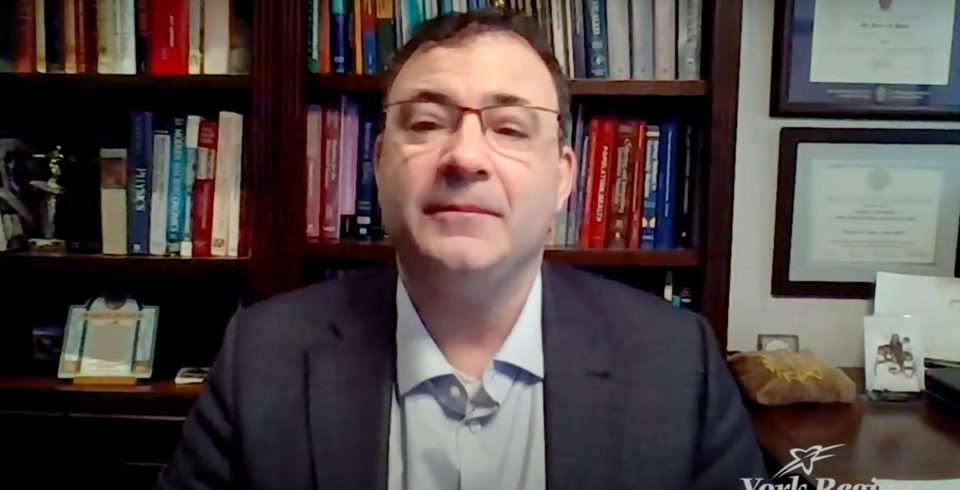York Region Public Health said public restrictions are working as data suggests as COVID-19 cases are now plateauing.
Medical officer of health Dr. Barry Pakes said in a Jan. 17 video update that the most recent wastewater surveillance data — used to monitor COVID-19 and now considered more reliable than raw case totals — indicates the region may be reaching a plateau of cases.
Pakes said this aligns with recent forward-looking projections and is indicative that vaccination efforts and restrictions are helping.
“We are beginning with some hopeful indications,” Pakes said. “While we continue to face challenging times, we can be reassured our hard work and sacrifice are bearing fruit.”
The region posts wastewater data on its dashboard, but it only updates it every second week. The last publicly posted update was Jan. 7. Still, public health had previously indicated the peak of the Omicron cases could be Jan. 15, with a downturn on the horizon.
Pakes also touched on the return to in-person school starting Jan. 17. He said though it is understandable parents are concerned by the province stopping COVID-19 case reporting, rapid tests and updated screening should help.
“The return to school may be worrisome for some parents,” Pakes said. “However, new provincial screening guidance, as well as distribution of further rapid tests for symptomatic children will help keep COVID-19 outside of school to the extent possible.”
He reminded parents that vaccination is key to keeping their families safe and although the risk of severe COVID-19 in children is low, it is much lower with vaccination. Anyone can walk-in for a first or second COVID-19 dose at York Region clinics, and though eight weeks is a recommended wait time between doses, you can get one as early as 21 days between a first and second at York clinics.
Pakes also addressed a common point of “confusion and controversy” about vaccinating after contracting COVID-19. He said you can do it as soon as you feel better and your isolation period has ended.
He added there is evidence a 30-day wait may ensure longer-lasting protection. But with limited access to testing, it may be prudent to get vaccinated earlier than that if you cannot get tested confirmation you had COVID-19.
You can book a vaccine appointment at york.ca/covid19vaccine.
“These restrictions have had an impact on our hospitalizations and ICU admissions and are very important to our health-care systems,” Pakes said. “I look forward to sharing more positive news with you in the future.”



